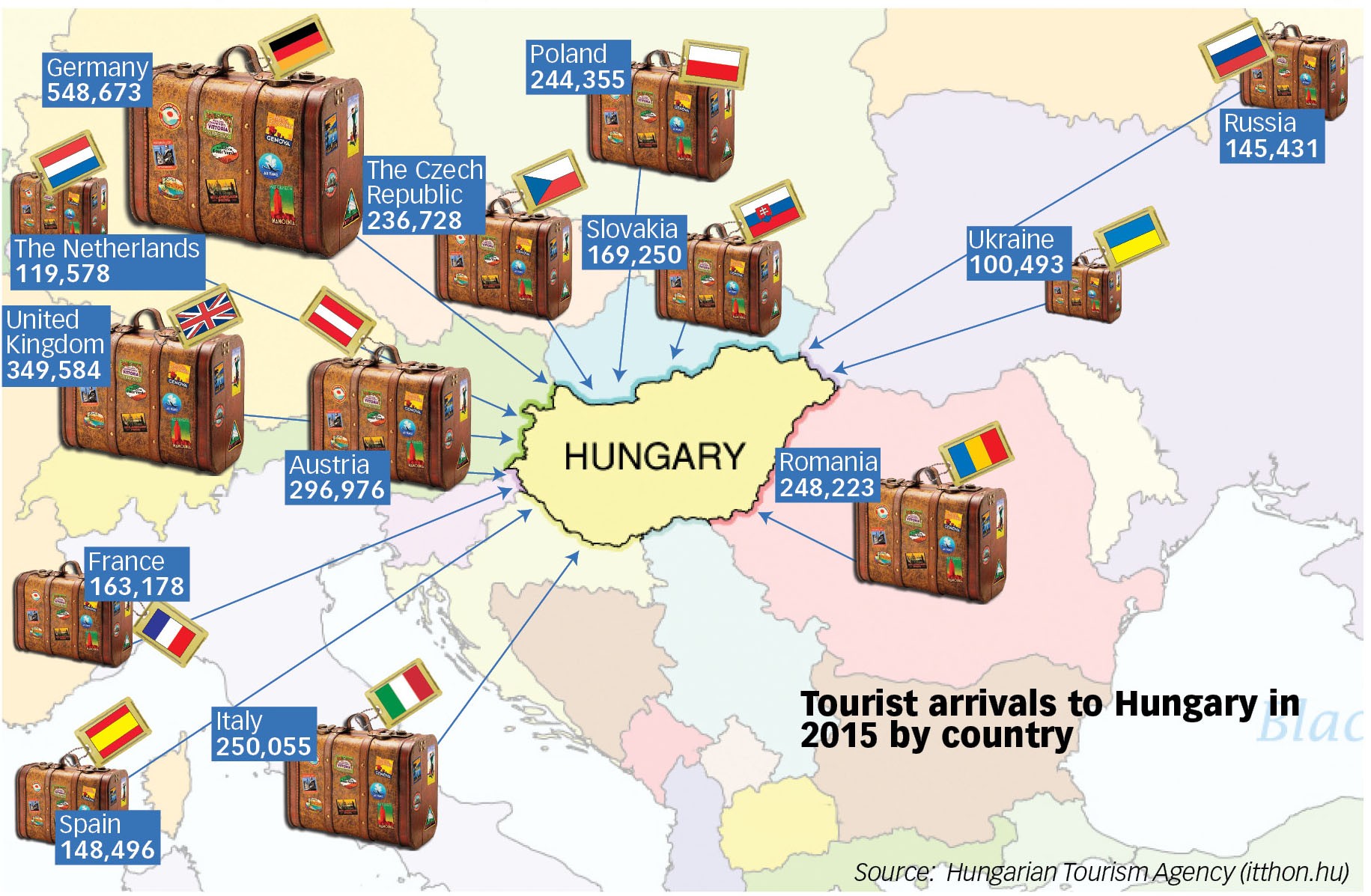In spite of tough economic conditions, Ukrainians continue to look to Hungary as an affordable vacation destination. The central European neighbor is consistently among the nations of the European Union’s borderless Schengen zone which issues the most visas to Ukrainians.
Last year, at least 116,000 Ukrainians received short-term visas to visit Hungary.
These facts have not gone unnoticed by Hungarian tour operators, of which there are an abundance in the Ukrainian capital. To judge by their advertisements, Hungary, which shares an 85-mile border with Ukraine, has something to suit every traveler: from spa holidays for relaxation and revitalization, to city tours to Budapest and other metropolitan centers.
Low costs appear to be keeping Hungary a top vacation spot, with the country offering Ukrainians a slice of Europe at prices comparable to those they might find at home. Hungary still uses its own currency, the forint, having chosen not to join the euro.
“Of the inexpensive European options, tourists prefer Hungary because it’s beautiful, rich in culture and has great food and wine,” says Tatyana Kazakova, director of the Ukrainian branch of Hungarian tour operator 1000 Roads. “Prices are reasonable given the high level of service.”
The numbers appear, at least partially, to bear out those assertions. User-contributed data collated by website Numbeo shows the average cost a 1.5-liter bottle of water in Hungary in a supermarket is around 100 forint, roughly equivalent to Hr 9. A cheap meal will set you back 1,500 forint, Hr 137, and a pint of beer 320 forint, or Hr 29. The relatively expensive sectors are those which will be of less concern to tourists. They include rent (33 percent more expensive than in Ukraine) and the overall cost of living, which is nearly 63 percent more expensive in Hungary, according to Numbeo.

Tourist arrivals to Hungary in 2015 by country
But even with such prices, given the current tough economic conditions at home, holidays are one area that Ukrainians are likely to be cutting back on. That presents challenges to tour operators who entered the Ukrainian market in better times.
1000 Roads is a tourist company that opened its Kyiv office in 2011. Since then, Ukraine has known the corruption of ex-President Victor Yanukovych’s era, a revolution that forced Yanukovych out and Russia’s war against Ukraine. All of that combined to put Ukraine in recession in 2014 and 2015. This year, economic growth is expected — but still the gross domestic product has dropped from $180 billion to $90 billion since 2013.
In spite of the gloomy numbers, the Ukrainian branch of 1000 Roads is still enjoying robust growth. That, according to Kazakova, is thanks in large part to a selection of tours and holiday packages that are in step with the economic situation.
“Even during the difficult times we see today, our company is developing dynamically and our network of agencies is growing. We have something to offer for every taste and budget. We do VIP travel but also offer options which are highly economical,” she said.
Given its convenience and cost, Hungary is sure to remain a popular option for Ukrainians seeking to vacation abroad. And that means the presence of Hungarian tour operators is unlikely to diminish. But apart from a poorly performing economy, a new challenge is on the horizon in the form of visa-free travel for Ukrainians to the European Union.
If and when that comes into force, Hungary will lose its position as one of the top vising-issuing nations to Ukraine. With 26 Schengen Zone nations then at their fingertips, Ukrainians may seek new places to spend their tourist hryvnias.
